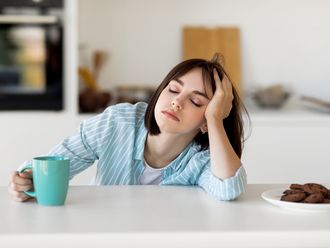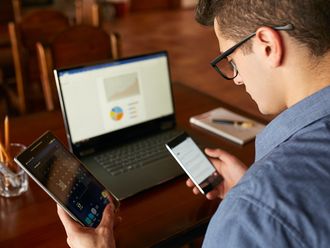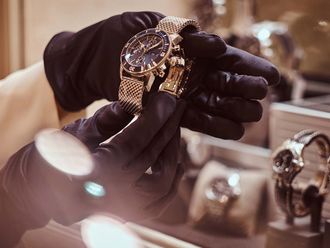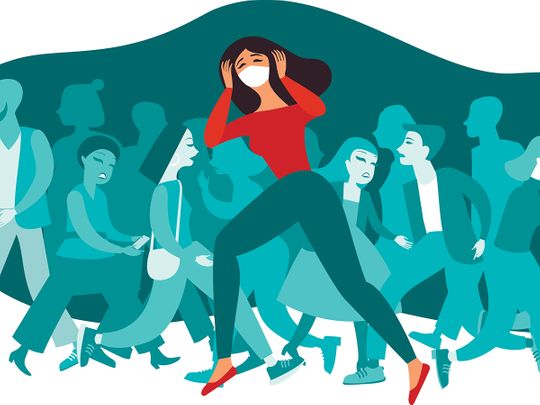
For the better part of his freshman year in 2020, Rounak Diwale did not know what his classmates looked like. Two years later, the second-year law student in Dubai says he still hasn’t met at least 30 per cent of his batch.
“After a while, some of us got to see each other without the mask on, like ‘Oh, this is how you actually look like, I didn’t know’. It was an odd experience – a little difficult for me to adjust to – since I was brand new to the city and had zero friends,” the 20-year-old Indian expat told Gulf News.

After a while, some of us got to see each other without the mask on, like ‘Oh, this is how you actually look like, I didn’t know’.
With restrictions having eased, seeing colleagues and old pals in person rather than on the screen is bound to be a tad awkward. But those who routinely feel anxious about social settings will have a harder time adjusting and might even opt out of get-togethers completely.
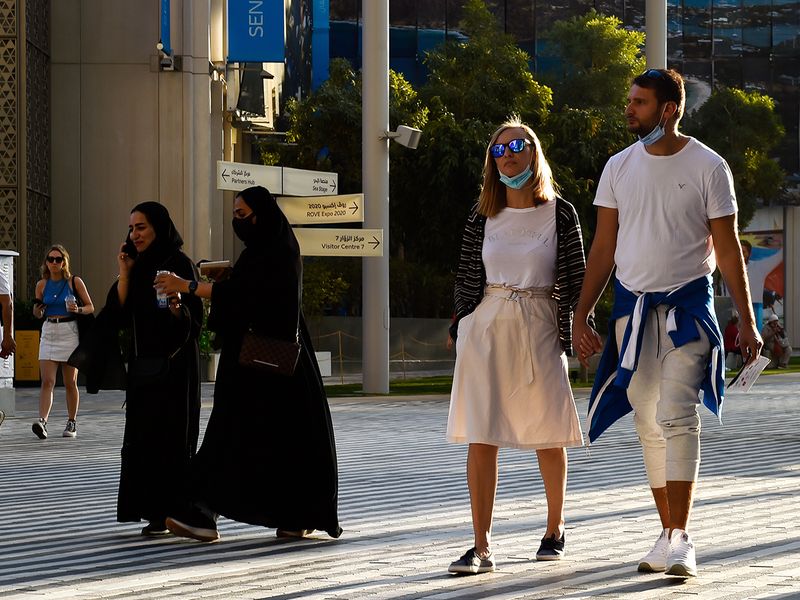
“People with social anxiety are finding it difficult to go out now, especially children, adolescents and young adults. They’ve lost their social skills and even feel embarrassed to interact with their own friends and peers,” said Dr Shaju George, a specialist psychiatrist at the Dubai Community Health Centre in Dubai. “They were comfortable with [the pandemic] restrictions because of masks and not needing to expose themselves.”

The mask came as a blessing in disguise for many people. It actually helped reduce social anxiety for those who were very self-conscious and afraid of being judged, by hiding their faces.
Dr Girish Banwari, a specialist psychiatrist with Medcare Medical Centre, Jumeirah, Dubai, says masks were "a blessing in disguise" for the socially anxious: “The mask came as a blessing in disguise for many people. It actually helped reduce social anxiety for those who were very self-conscious and afraid of being judged, by hiding their faces. All of those who found relief are now faced with the challenge to reintegrate into social settings. The mask mandate has been lifted in many places, so there are people who come to me, especially those who've been working from home, who are not comfortable with going back.”
If this sounds like you or a friend, experts tell us how we can alleviate the constant dread through lifestyle tips and professional help.
Social anxiety: The aftermath of a bad experience?
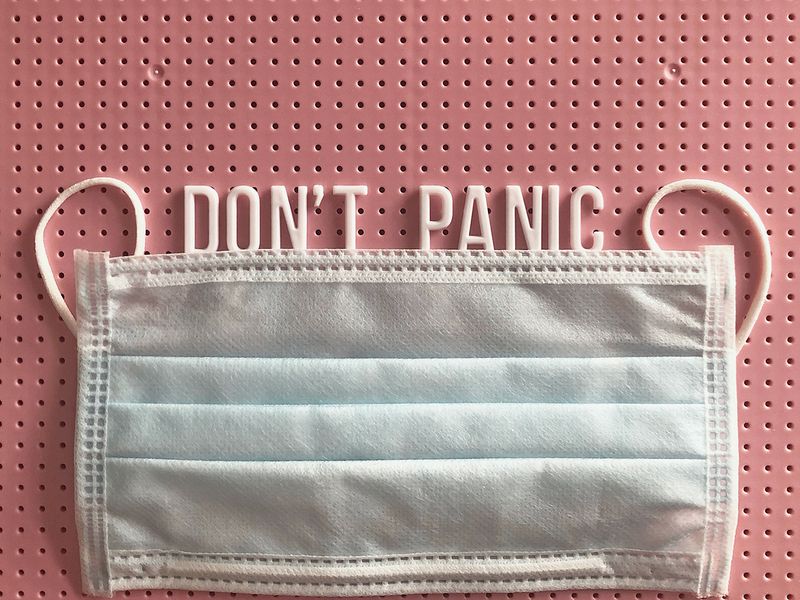
In the body, it looks something like this: Shortness of breath, sweating, pounding heartbeat, restlessness, feeling jittery, shivering and frequency of bladder and bowel movements. Dr George says people exhibiting social anxiety symptoms appear very nervous, too.
Emotionally, the major symptoms are avoidance and intense fear, which set social anxiety apart from feelings like shyness.
Even the mere thought of making calls or walking into a crowded mall can trigger these physical reactions. Given how debilitating they are, people with social anxiety much rather cancel plans and spend time in their room, or worse, even resign.
“I had a 27-year-old patient, who worked in a major corporate office here in Dubai. He chose to work from home, until the company mandated reporting from onsite. Now that work from office was made necessary, he tried to dodge the issue by requesting the HR department to let him work from home.
“He was not comfortable with the office environment, having to indulge in small talks, meetings and making presentations in the board room. He was expected to keep the mask down and his body language would be exposed. The fear of going back to office made him resign eventually, even though a promotion was due. This is how bad his anxiety got for him,” said Dr Banwari.
But how is this type of anxiety developed in the first place?
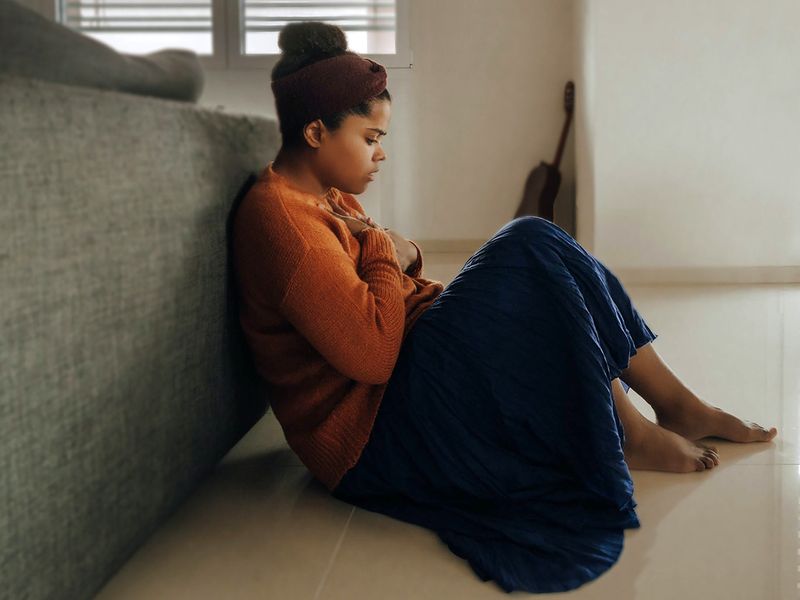
“Any anxiety disorder occurs partly due to nature and nurture. If I’m inheriting genes for anxiety from my sibling, parents, grandparents or cousins, then I’m more likely to develop anxiety.
“But there’s the environment, too. Say once I got embarrassed in front of a group of classmates or colleagues, it’ll create a distressing situation for me. Then I’ll try to avoid similar situations in the future and develop anxiety towards them; this comes as generalised conditioning,” Dr George said.
Any anxiety disorder occurs partly due to nature and nurture.
Social anxiety can be the result of a combination of factors, from biological and social to genetic and psychological, says Dr Banwari. Symptoms of anxiety begin to creep in only in social settings, where the person constantly feels judged and self-conscious, than they would in non-social situations.
Social phobia can also breed from an unpleasant experience in the past, according to Dr George. The only way out, we feel, is avoidance. But Dr George says constantly blocking any channels of communication can stem our mental growth:
“We are social animals, we cannot live without interacting with people. If I’m not interacting with others, my growth will be affected, both as a person and as a professional.”
Nerves or anxiety?
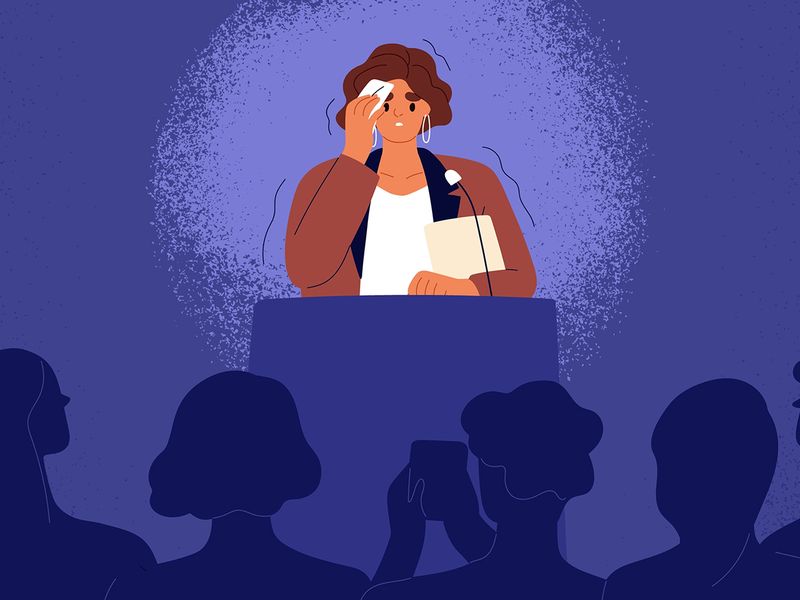
Trying your hand at things for the first time can make your palms clammy. Even a little cold sweat before presenting in front of the whole class is expected. What makes social anxiety different from the usual nerves, is that you will deliver the presentation and feel okay once it’s over.
If the dread sticks with you, though, to the point that it affects your day-to-day life, you might not present again or avoid doing it at all costs. New, unfamiliar experiences can also trigger some degree of anxiety.
Abdul Wahab, 22, Indian expat and logistics officer in Abu Dhabi, says his six-year-old niece dislikes socialising “in real life”, after two years of online schooling.
“She began kindergarten online, so to her this was school, this was the only way she was going to meet her friends, on the tablet. But since she’s started attending school in person, she doesn’t strike conversations with anyone. We encourage her to go out and play with her friends, but she says ‘No, my friends are coming online’,” Abdul said.
Turns out, socially anxious people find online interactions less intimidating, finds a 2012 study in the US-based journal of Cyberpsychology, Behaviour and Social Networking.
Ways to cope with social anxiety
So, how do you beat the fear? Dr George says the answer lies in lifestyle changes, gradual exposure and prescribed therapy and medication, depending on the degree of the anxiety.
Here are some lifestyle tips to help you control what typically feels like is out of your control:
• Relaxation techniques
These can help ground you, if you’re beginning to feel jumpy with lots of people around. A relaxed person cannot be anxious, says Dr George. He advises the 4-7-8 deep breathing technique to his anxious patients.
“Those without anxiety will breathe 12 to 16 times in 60 seconds. People with anxiety breathe 25 to 30 times. With the 4-7-8 technique, you’re inhaling through the nose for four seconds, holding it in for seven then exhaling for eight seconds. Do this for 10 minutes in the morning and then at night before bed, or whenever you’re feeling anxious,” he added.
• Regular exercise
“When we exercise, the brain produces neurohormones like endorphins that help improve your mood and reduce stress levels,” said Dr George.
• Eat well
Don’t miss out on your meals – sit down for all three, says Dr George, especially breakfast.
• Cut down on coffee
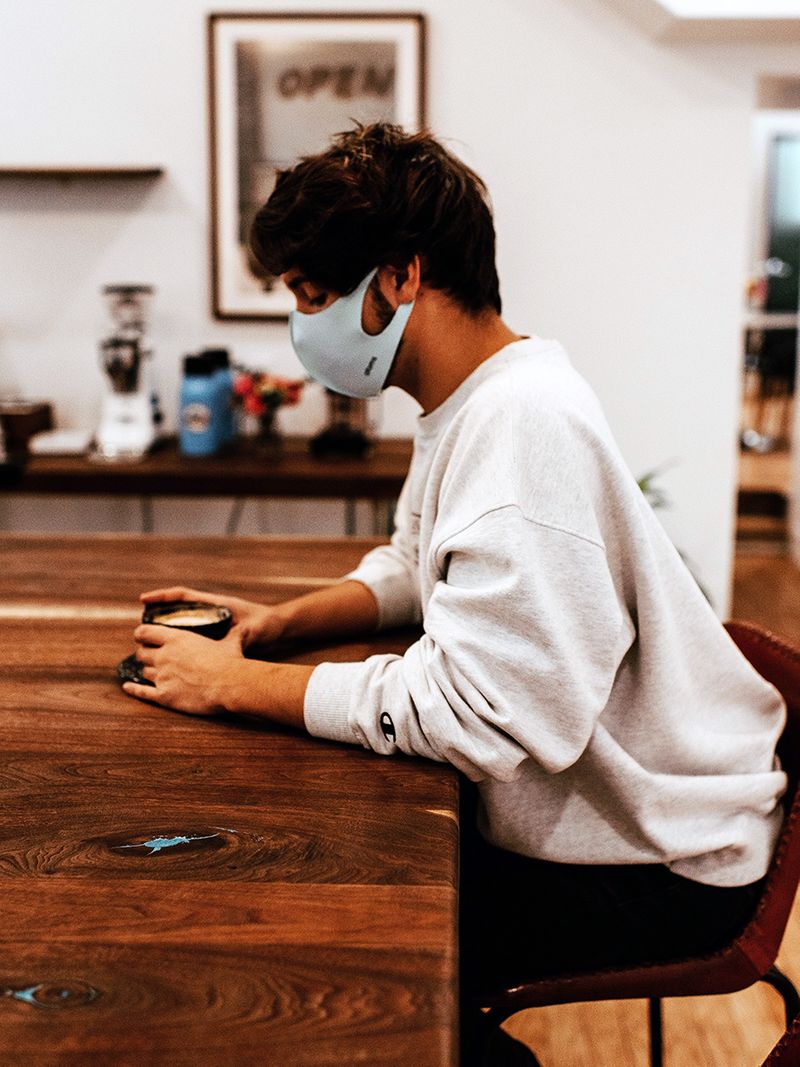
The caffeine in coffee is just going to exacerbate your palpitations. So Dr George suggests we reduce our daily caffeine intake.
• Spend time with your close circle
This is the beginning of a process called ‘gradual exposure’. Coming out of your room, sitting in the living room and conversing with your family is the first step to getting used to social situations. Dr George says they can gradually add to this by making plans with their best friends, close friends and then peers. If none of these changes are making a difference, then it’s time to seek professional help.
The more you avoid, the more anxious you’ll become. So avoiding avoidance is the key.
“A bit of social anxiety is expected. It's an adaptive response to a threat,” said Dr Banwari. “You might feel uncomfortable going back to the office after a long time, but there's a good chance that your brain will learn to adapt. If it persists, you see yourself bogged down by the symptoms and they’re impeding your productivity, then it’s time to seek professional help.”
Social anxiety disorder requires professional therapy in moderate to severe cases, says Dr George.
With schools and offices operating at full capacity, he adds that social anxiety cases have definitely risen. His final word of advice is: “The more you avoid, the more anxious you’ll become. So avoiding avoidance is the key.”



